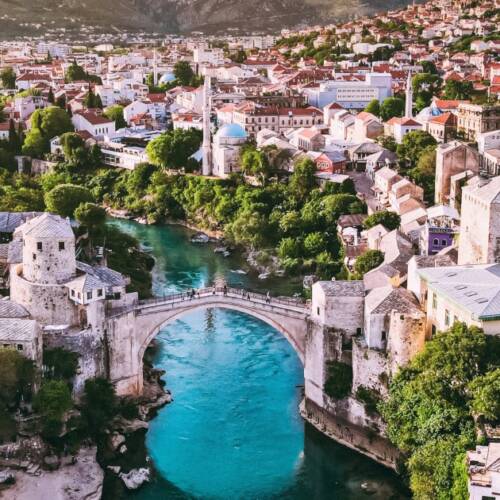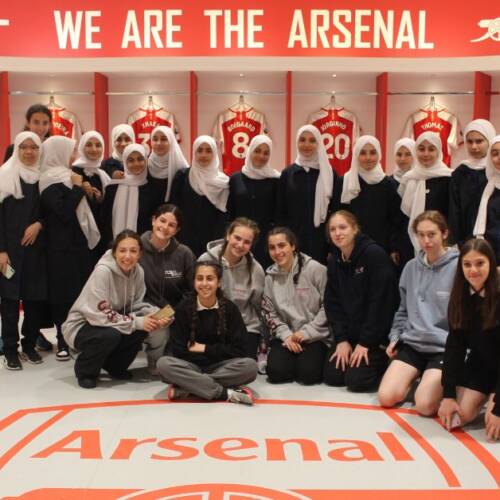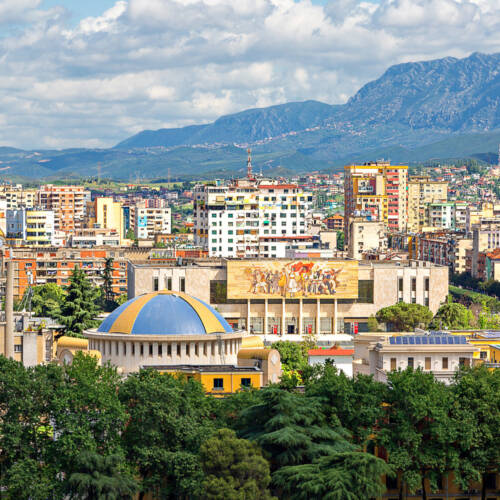
Can Faith Communities Help Defeat Climate Change?
13 Nov 2020By Qari Asim and David Kibble
In January we saw the bushfires in Australia: one fifth of Australia’s bush was destroyed. This summer we have seen wildfires in California and Oregon: 4.5 million acres have been burnt to the ground – that’s an area about the size of Wales. More recently we’ve seen wildfires in Siberia: this has caused the frozen layer just below the earth’s surface to melt. This melting of the permafrost can cause the release of methane – a greenhouse gas eighty times more dangerous than the carbon dioxide that is released into the atmosphere by the wildfires and by human activity.
David Attenborough and his fellow scientists are all telling us that we need to change our behaviour if we are to avoid the catastrophe (and it will be a catastrophe) that awaits our children and grandchildren. Indeed, that catastrophe has already begun as evidenced by the wildfires, by the floods in Africa and by the melting of the ice caps. That catastrophe will hit the poorest hardest and will result in an increase in disease, poverty, migration and conflict.
So what has all this to do with faith communities? Interestingly, in 2007 the British Environment Agency published the results of a survey of leading environmentalists and scientists in which they were asked to name fifty things that would save the planet. Second in the list was something of a surprise: the role of faith communities and faith leaders. Why was this? We suggest two reasons why faith communities are important in the fight against climate change.
First, the three Abrahamic faiths see man as being a steward of creation; so there will be a religious motivation for members of our faith communities to look after our planet. The Prophet Muhammad (peace be upon him) reminded us of our responsibility to protect the ecological balance, biodiversity and sustainability of all forms of life on earth when he said, ‘The Earth is green and beautiful, and God has appointed you his stewards over it.’
In the Hebrew and Christian scriptures God is pictured as placing man to ‘rule over’ the animal kingdom and to ‘work and take care’ of nature. Man is seen to be created in God’s image: as such that ‘rule’ is to be one of love toward creation, including love toward our fellow man, as a reflection of God as love. Although the word ‘stewardship’ does not appear in the Bible to describe man’s relationship to creation, that is in effect what it is. So in Islam, Judaism and Christianity the earth belongs to God and we are to act as stewards.
Secondly, local faith communities are ideal places in which to encourage people to help combat climate change. It may be easier for people to change their habits alongside others doing the same rather than trying to go it alone. We can all encourage one another. In our faith communities our leaders can preach and teach about the need to combat climate change if we are to be the good stewards that our scriptures tell us we should be. Other communities or clubs such as gyms, sports clubs and choirs do not have the authority or ability to teach people in the same way as a faith community does. So we can be ‘one step ahead.’
The Qur’an says: ‘Corruption has appeared throughout the land and sea by [reason of] what the hands of people have earned; so that He may let them taste part of [the consequence of] what they have done so that hopefully they will turn back.’ The extreme weather events, hurricanes, storms, wildfires and droughts that we are increasingly witnessing are all part of the ‘tasting’ of the consequences of our abuse and exploitation. Scientists tell us that we are responsible for the global warming which is driving the changes we are increasingly witnessing.
Islam, Judaism and Christianity teach us that it is the responsibility of humanity to care for our environment – to act as stewards of something we have in trust from God. We owe it to our creator and to future generations to pay attention to what is happening at the moment and to encourage our faith communities and then those outside our faith communities to take action. The Environment Agency was right to suggest that faith communities can lead on this issue.
We need now to encourage the members of our mosques, synagogues and churches to take action personally (looking at their energy consumption, diet, travel arrangements, and so on) and then to encourage others outside our faith communities to follow a similar path.
Yes, faith communities can lead and model with regard to combating climate change.
Qari Asim MBE
A real estate solicitor with DLA Piper, Qari is the Senior Imam at the Makkah Mosque in Leeds. He chairs the Mosques and Imams National advisory Board.
David Kibble
Formerly a Deputy Headteacher at Huntington School, York, David is a Licensed Lay Minister at St George’s Church, Leeds.












